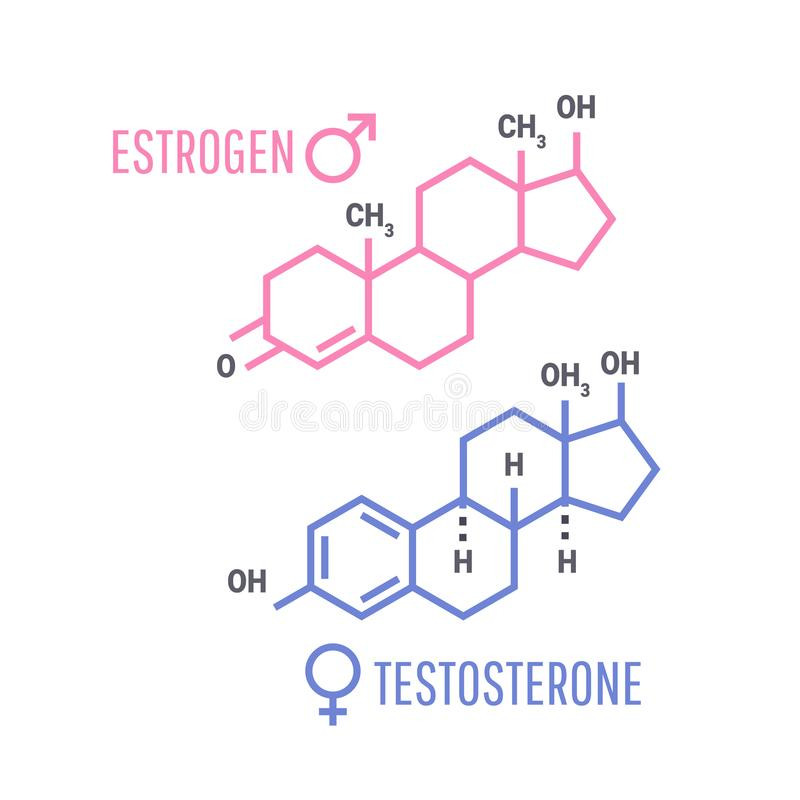Definisi
Hipergonadisme adalah suatu kondisi dimana terjadi kerja dan produksi hormon berlebih pada kelenjar gonad. Kelenjar gonad adalah kelenjar yang memproduksi hormon seksual dalam tubuh. Pada pria, kelenjar gonad terdapat di testis yang memproduksi hormon testosteron, sedangkan pada wanita kelenjar gonad terdapat di ovarium di rahim yang memproduksi hormon estrogen dan progesteron.Ketika kelenjar gonad bekerja untuk memproduksi hormon berlebihan, hal ini dapat menyebabkan pubertas sebelum waktunya, dan menyebabkan kadar testosteron atau estrogen yang tinggi.
Hormon-hormon ini merupakan hormon penting untuk perkembangan pubertas dan fungsi seksual di manusia. Kondisi hipergonadisme termasuk kondisi yang cukup jarang dibandingkan kondisi hipogonadisme atau kurangnya produksi hormon seks pada manusia. Kedua penyakit baik hipergonadisme atau hipogonadisme dapat memengaruhi kesuburan, pubertas, dan masalah lain yang berhubungan dengan perkembangan organ seks dan reproduksi, bergantung dengan kapan kondisi hipergonadisme atau hipogonadisme tersebut terjadi pada manusia. Kedua kondisi baik hipergonadisme dan hipogonadisme dapat diobati dengan tata laksana yang baik dan benar.
Penyebab
Kebanyakan dari kasus hipergonadisme tidak diketahui penyebabnya. Kondisi tersebut dapat dinamakan hipergonadisme idiopatik. Walaupun begitu, terdapat beberapa kondisi kesehatan yang dapat berujung ke kondisi hipergonadisme. Antara lain adalah:
- Tumor ovarium
- Infeksi yang sangat parah
- Penyakit autoimun seperti penyakit Addison, penyakit Hashimoto, dll.
- Penyakit ginjal atau liver
- Tindakan pembedahan atau operasi
- Abnormalitas hormon secara genetik
- Ensefalitis
- Terdapat cedera pada kelenjar gonad, kelenjar endokrin, atau kelenjar adrenal
Penyebab lain dari hipergonadisme antara lain adalah penggunaan steroid anabolik. Steroid anabolik adalah jenis obat yang mengandung hormon steroid buatan atau sintetis yang menyerupai testosteron atau hormon seks pria. Biasa dipakai oleh pria untuk membesarkan otot dan memberikan efek “maskulin”.
Baca selengkapnya mengenai ensefalitis Hashimoto, di sini: Ensefalitis Hashimoto - Definisi, Penyebab, Gejala dan Pengobatannya
Faktor Risiko
Faktor risiko dari hipergonadisme antara lain adalah:
- Penggunaan steroid anabolik yang berlebih
- Usia remaja
- Menderita penyakit autoimun
- Riwayat hipergonadisme di keluarga
- Riwayat menderita penyakit infeksi
Gejala
Bergantung dengan kapan usia terkenanya, hipergonadisme dapat menimmbulkan berbagai gejala. Bila kasus hipergonadisme terjadi saat usia pubertas, hipergonadisme dapat menimbulkan gejala berupa pubertas prekoks atau pubertas berlebihan yang terjadi perkembangannya terlalu cepat. Bahkan gangguan mood dapat menjadi salah satu gejalanya. Namun sayangnya, hipergonadisme hanyalah satu dari berbagai penyebab dari pubertas prekoks. Maka dari itu, dibutuhkan beberapa pemeriksaan lebih lanjut untuk mengetahui penyebab pastinya.
Beberapa masalah kesehatan yang dapat menyebabkan pubertas prekoks antara lain adalah masalah genetik kelainan sistem saraf pusat, tumor ovarium, hipotiroidisme, gangguan kelenjar adrenal, dan lain lain. Beberapa tanda waspada yang dapat mengindikasikan terjadinya pubertas prekoks antara lain adalah jerawat, gangguan mood, siklus menstruasi yang tidak teratur, pertumbuhan rambut kasar di tubuh yang berlebihan, suara yang lebih rendah, pertumbuhan yang terlalu cepat dalam waktu singkat, perkembangan payudara yang terlalu cepat dalam waktu singkat. Pada pria, biasanya gejala hipergonadisme akan memiliki gejala seperti atas namun ditambah dengan gejala berupa massa otot yang meningkat, gairah seks atau libido yang meningkat, ereksi spontan, dan ekspulsi dari sperma (ejakulasi) secara spontan dan berlebihan.
Bila hipergonadisme terjadi setelah masa pubertas, laki-laki dapat mengalami rambut rontok sedangkan pada wanita dapat berupa pertumbuhan rambut halus di wajah.
Diagnosis
Diagnosis dari hipergonadisme dilakukan dengan melakukan wawancara medis antar dokter dan pasien atau keluarga pasien, pemeriksaan fisik, dan pemeriksaan penunjang.
Wawancara Medis
Dokter akan menanyakan mengenai:
- Gejala yang dialami saat ini
- Riwayat penyakit terdahulu
- Riwayat penggunaan obat-obatan tertentu
- Riwayat penyakit keluarga
Pemeriksaan Fisik
Kemudian dokter akan melakukan pemeriksaan fisik. Pemeriksaan fisik dilakukan untuk memeriksa kondisi umum dan kondisi spesifik. Pada pasien anak remaja dan dewasa, dokter akan memulai pemeriksaan dengan memeriksa suhu tubuh, laju napas, nadi, dan tekanan darah bila diperlukan. Kemudian dokter akan memeriksa kondisi pasien mulai dari ujung kepala dan ujung kaki. Dokter akan mencocokan kondisi tubuh dengan tanda-tanda dari hipergonadisme seperti timbulnya rambut di tubuh yang berlebihan, jerawat, atau adanya perkembangan payudara yang sangat cepat dalam waktu singkat. Pada anak remaja biasanya dokter akan mencocokan tanda pubertas menggunakan skala pubertas “Tanner” baik itu pada remaja putra atau remaja putri. Dokter juga dapat memeriksa bagian kelamin pasien bila memang dirasa perlu.
Pemeriksaan Penunjang
Selanjutnya, dokter dapat merekomendasikan beberapa pemeriksaan penunjang. Pemeriksaan penunjang yang dapat dilakukan berupa:
Pemeriksaan Laboratorium
- Darah Lengkap : untuk mengecek kadar hormon seks seperti progresteron, estrogen, dan testosteron. Selain itu pemeriksaan darah juga dapat dilakukan untuk melihat adanya kecurigaan akan penyakit lain yang dapat menyebabkan hipergonadisme seperti penyakit infeksi dan penyakit autoimun.
- Analisa sperma
Pemeriksaan Radiologi
- CT scan : untuk memeriksa kelenjar seks
- Magnetic Resonance Imaging (MRI) : untuk memeriksa kelenjar seks
Dokter juga dapat merekomendasikan pemeriksaan genetik bila diperlukan.
Tata Laksana
Pengobatan hipergonadisme bukanlah hal yang mudah. Tujuan dari pengobatan adalah untuk mengurangi kadar hormon, lebih sulit dibandingkan pada kasus hipogonadisme yang bertujuan untuk meningkatkan kadar jumlah hormon.
Pengobatan yang dapat dilakukan dapat berupa terapi hormon dengan membuat campuran hormon dengan dosis yang tepat untuk membantu mengurangi hormon dalam tubuh. Selain terapi hormon, dokter juga dapat memberikan terapi obat-obatan untuk membantu mengurangi gejala yang ada, terutama bila penyebab spesifik dari hipergonadisme sudah diketahui. Contohnya, bila penyebab dari hipergonadisme merupakan kelainan tiroid maka dokter dapat meresepkan obat-obatan tertentu untuk penyakit tiroid untuk mengurangi gejala dan memperbaiki kondisi.
Selain itu, dokter juga dapat bekerjasama dengan tenaga kesehatan lain seperti psikolog dan psikiater karena pada beberapa kasus hipergonadisme dapat memberikan dampak kepada kesehatan psikis dan mental dari pasien sehingga penanganan secara menyeluruh dapat dilakukan untuk memperbaiki kondisi pasien secara fisik dan mental.
Jika Anda ingin mengetahui lebih lanjut mengenai penyakit hipogonadisme, Anda dapat membacanya di sini: Hipogonadisme - Definisi, Penyebab, Gejala dan Pengobatannya
Komplikasi
Selain jerawat dan perubahan fisik lain seperti tumbuhnya rambut halus di wajah dan jaringan payudara di pria, hipergonadisme dapat menyebabkan komplikasi lain yang lebih serius.
Hipergonadisme dapat mengganggu siklus menstruasi, sehingga dapat saja memengaruhi kemampuan wanita untuk hamil dan kesuburan.
Selain itu, pria juga dapat mengalami permasalahan kesuburan, terutama bila kondisi hipergonadisme disebabkan oleh penggunaan steroid anabolik secara berlebih. Steroid anabolik dapat memengaruhi kesehatan testis, salah satunya adalah mengurangi produksi sperma.
Secara umum, komplikasi yang berhubungan dengan hipergonadisme berhubungan dengan penyebab utamanya. Dengan mengobati penyebab dari hipergonadisme dapat membantu untuk mengurangi gejala dan komplikasi akibat hipergonadisme.
Pencegahan
Tidak ada cara khusus untuk mencegah hipergonadisme.Namun beberapa hal yang dapat dilakukan untuk mengurangi kemungkinan dan risiko terkena hipogonadisme adalah dengan melakukan skrining pada anak-anak dan remaja pria sedini mungkin. Sehingga, bila terdapat risiko atau kemungkinan terkena hipergonadisme dapat ditangani sedini mungkin dan memberikan hasil pengobatan yang lebih baik kedepannya.
Kapan Harus ke Dokter?
Pada remaja, bila terjadi tanda-tanda dari pubertas prekoks atau tanda-tanda pubertas sebelum waktunya, maka remaja tersebut wajib untuk periksa ke dokter anak subspesialisasi endokrin metabolik.
Namun, bila tanda-tanda hipergonadisme terjadi pada usia dewasa, maka anda dapat berobat ke dokter spesialis penyakit dalam subspesialisasi endokrin metabolik.
Mau tahu informasi seputar penyakit lainnya? Cek di sini, ya!
- dr. Monica Salim
Biomedical Study - Male hypergonadism: case study. (2022). Retrieved 19 November 2022, from https://thebiomedicalscientist.net/science/male-hypergonadism-case-study
CCHC - An Overview of Hypergonadism. (2021). Retrieved 19 November 2022, from https://ccchclinic.com/an-overview-of-hypergonadism/
Health Line - Hypergonadism. (2018). Retrieved 19 November 2022, from https://www.healthline.com/health/hypergonadism#symptoms











